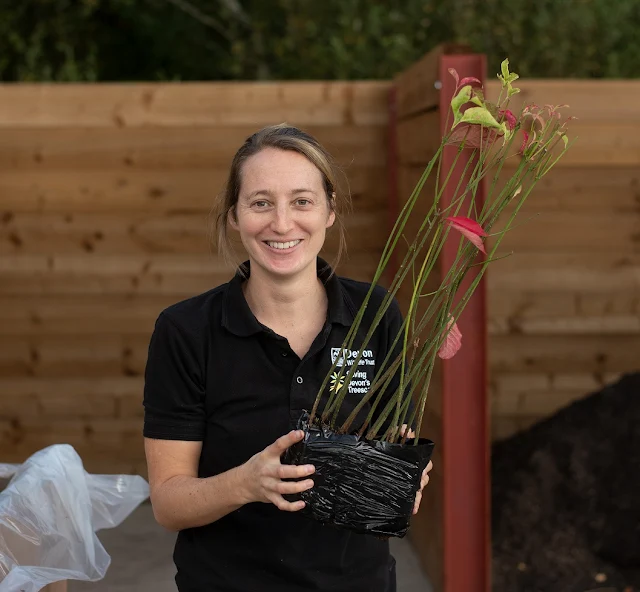Wildlife enthusiasts are being encouraged to take part in one of Devon's biggest citizen science projects
The Devon Bat Survey returns this year with opportunities for nature lovers to get involved in one of the county's biggest citizen science initiatives.
The Devon Bat Survey has run since 2016 and has clocked up millions of sound recordings of the flying mammals, contributing to conservationists' knowledge of bats and their habits. This vital information helps understanding about the health of Devon's environment which can then be used to help protect the bats. All UK bats eat insects, so they need conditions in which insects thrive including clean rivers, wildflower rich meadows, healthy woodlands and hedgerows.
This year, the Devon Bat Survey is especially keen to hear from people in North Devon, Torridge and the Blackdown Hills – areas where it has fewest records.
Lindsay Mahon works for the charity Devon Wildlife Trust and is the Devon Bat Survey coordinator. Lindsay said:
"The feedback we get from our bat detectives is amazing – people enjoy being involved and discovering which bats are living near them. I am delighted that we have been able to open the survey more widely this year and offer more people an opportunity to get involved in helping these protected species.
We are looking for surveyors in Devon who have gardens or their own land in which they can safely put one of our digital bat detectors. The detectors themselves are small and come with full instructions. The survey is free to take part in, and people can sign up via the Devon Wildlife Trust website.
Taking part in the survey involves borrowing one of our bat detectors for a few nights, setting it up outside and letting it do the rest. Participants then upload the digital sound recordings to an online system. This then tells them which bats have visited their garden.
The survey is usually very popular, so my advice is to book early as the spaces fill up fast. We are extremely grateful to everyone who takes part, including the host centres which act as the collect and return points for the bat detectors. We simply couldn't run a survey of this scale without our host centres and citizen scientists."
During its previous seven years the Devon Bat Survey has identified 13 different species of bat in Devon. Some of these are relatively common such as pipistrelles, but others, including greater horseshoe and barbastelle bats, are considered rare and under threat.
Tammy Falloon, Managing Director of St. Bridget Nurseries, is acting as a Devon Bat Survey 'host centre' – one of the places across the county where detecting equipment can be borrowed. Tammy said:
"Being a host centre attracts new visitors to our garden centre and we are always looking to encourage people to find ways to attract wildlife to their gardens. The process of taking part is very simple, I did it myself with my family and the results are so detailed and interesting. I knew I had bats in my garden, but I had no idea there were so many different types!"
This year, the bat survey's data will again be helping the vital work of the Saving Devon Treescapes project. This partnership project is led by Devon Wildlife Trust on behalf of the Devon Ash Dieback Resilience Forum, and is funded by the National Lottery Heritage Fund. The initiative is working with local communities to plant new trees to replace those lost to the destructive fungal disease known as ash dieback. The Devon Bat Survey is an important part of the project's citizen science activities providing vital insights into where bats fly and feed locally will help the project target its work most effectively.
Devon residents can find out more about taking part in this year's bat survey at https://www.devonwildlifetrust.org/devon-bat-survey-2023.
The Devon Bat Survey runs from now until 6th October.
Devon Bat Survey. Common Pipistrelle bats. Photo copyright Tom Marshall (All Rights Reserved)

.jpg)

%20Amy%20Lewis.jpg)
%20Mark%20Hamblin2020VISION.jpg)




.JPG)
.JPG)
.jpg)